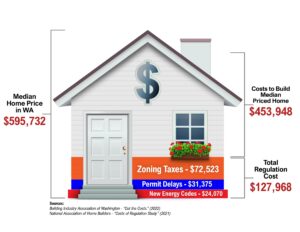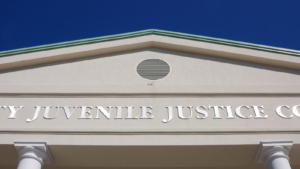Several of my e-newsletters have highlighted news about the governor’s cap-and-trade program that would be more appropriately titled “cap-and-tax.” This is the policy that has resulted in a 50-cent increase to a gallon of gas — an increase that could climb much higher.
As I shared before, the governor was either ignorant or outright lied to the press and the public last year when he said the program would cost only pennies or might even lower fuel costs. More recently the Attorney General’s office advised the state Utilities and Trade Commission that it would be too confusing for the power companies to itemize the impact of this policy on your home-heating bill. And Inslee and majority Democrats continue to scapegoat oil companies –– accusing them of price-gouging. He even blamed a downed pipeline for the price spike, even though it had already been open at that point for nearly a month.
Now, a state employee whistleblower who refused to lie about the expected price impact of cap-and-tax is planning to file a lawsuit against the Washington State Department of Transportation (WSDOT). The employee is an economist who was one of the top staff members at the WSDOT. He prepared estimates that showed the cap-and-tax program would have a significant impact on the cost of fuel in Washington. He was then pressured by the governor’s Office of Financial Management (OFM) to change the numbers in his reports.
The employee says that after he refused to fudge the numbers, WSDOT began an effort to drive him out of state service, ultimately eliminating his position and forcing him into early retirement.
This whistleblower’s lawsuit is the real example of radical transparency because it shines even more light on what appears to be a coordinated effort to manipulate you, the people, into accepting a policy that is cutting into your family budget.
Read the employee’s demand letter.
We should instead support smart environmental policies that do not unduly burden working families. Those responsible for making laws and implementing them should be honest about the effects of government policies rather than be misleading about an agenda the people might not support if they knew the truth.
I will keep an eye on how the lawsuit develops. In the meantime, I am working on policy solutions to alleviate the pressure you feel every time you fill up your tank.
Read my statement on this latest development.
Regards,
John Braun
State adopts energy-code rules that will add $9,000 to $30,000 to the cost of building a home
The Washington State Building Code Council (WSBCC) has adopted amendments to the statewide energy codes that will increase the cost of building a home in Washington.
The amendments favor heat pumps, which have high upfront costs. Citing environmental and health benefits, proponents have argued against other clean-energy options such as the use of natural gas.
My colleague, Sen. Lynda Wilson, R-Vancouver, serves on the council and pushed back against adopting the amendments because a complete cost-benefit analysis had not been provided. She also noted that limiting the use of natural gas puts Washington out of compliance with a 9th Circuit Court of Appeals ruling that struck down a city ordinance regulating energy use because federal law preempts it.
The Building Industry Association of Washington (BIAW) estimates these changes will add $9,000 to the cost of all-electric homes and $30,000 to homes that use natural gas. The executive vice president of BIAW also notes that “these rules clearly continue to violate the federal Energy Policy and Conservation Act. This assault on energy security is unfair and unnecessary.”
I agree. While we must build energy-efficient homes, promote clean energy and conserve energy in general, it is a mistake to make housing even more expensive at a time when Washington has a critical shortage of affordable housing.
Did you know that right now, in King County, you have to earn twice the median salary to afford the median-priced home? Rules like the ones adopted by the WSBCC are driving us toward a similar situation in Southwest Washington and all over the state. Higher construction costs will also result in higher rents for those who can’t afford to buy a home. Not only is this a violation of federal law, it is bad policy. We must do better.
Poor management plagues Washington’s juvenile detention centers
In light of recent problems at the Green Hill School juvenile detention center in Chehalis, I wanted to share a story that shows how broad the problem of poor management is at similar facilities.
Last weekend, three violent teenage offenders escaped from Echo Glen in Snoqualmie. Two of the teens were being held for murder.
Both facilities are run by the Department of Children and Youth Services (DCYF).
The escapees are back in custody, but this incident is the latest of many examples of how dangerous and poorly managed our juvenile detention centers are.
I have joined the call for an investigation into Green Hill School, but a wider investigation of Washington’s juvenile detention centers is warranted.
Important News Clips
- OPINION: Academics is less of a priority in our schools, and it shows (Sen. Brad Hawkins/The Seattle Times)
- COLUMN: Student discipline: Are schools equipped to handle behavioral extremes? (Claudia Rowe/The Seattle Times)
- EDITORIAL: The answer to learning loss is within reach (The Seattle Times)
- OPINION: Washington’s police pursuit rules are putting you in danger. Mayors want them fixed (Jason Whalen, mayor of Lakewood/The News Tribune)
- Deputy Coroner reports huge spike in overdose deaths (KONP Radio)
- Testing for fentanyl: the new process for handling a stolen car (KAPP/KVEW)
- Seattle records most homicides in at least 44 years in 2023 (KING TV)
- COLUMN: It now takes at least 6 figures for a family to get by in Seattle (Danny Westneat/The Seattle Times)













